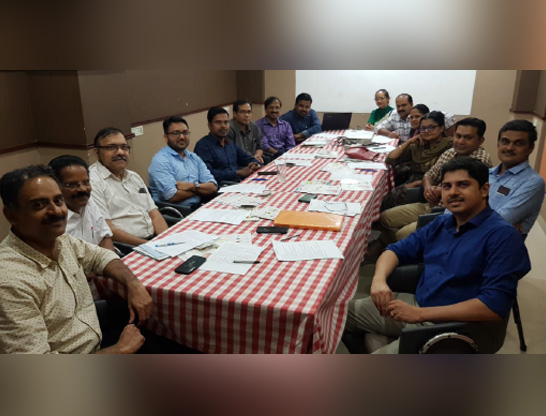
About Us
NNF Kerala is the Kerala state chapter of The National Neonatology Forum India (NNF) came into existence in 1980 through the initiative of a handful of leading pediatricians working in the field of neonatology. They set forth the following objectives for NNF:

To encourage and advance the knowledge, study and practice of the science of neonatology in the country;To draw out recommendations for neonatal care at different levels;To establish liaison with other professionals concerned with neonatal care;To assess the current status of electronic equipment being used in the country for perinatal care;To promote indigenous manufacturing of the equipment; Todevelop neonatal component of the curriculum for medical as well as nursing teaching;andTo organize conferences, training’s, workshops etc. Topromote neonatal care in the country.
NNF prepared the first set of recommendations on neonatal care in India in 1980. In 1982, a task force on Minimum Perinatal Care (1982) with participation of NNF and the government of India envisaged that ‘level I care will be imparted through the trained TBAs and female health workers in the community’ [5]. In years that followed, several members of NNF experimented with community-based projects on newborn care; training of TBAs, health workers and nurses; small hospital newborn care models; utilization of workers of the Integrated Child Development services for newborn care; and simplifying the technology of newborn care to suit the low resource settings.
By early nineties, the successful implementation of the Universal Immunization Program had led to a steep decline in neonatal tetanus and thereby a big drop in neonatal mortality. By then, NNF had succeeded in putting newborn health firmly on the national agenda through sustained advocacy and track record. As the national Child Survival and Safe Motherhood (CSSM) program was being formulated (1992), NNF recommended that Essential Newborn Care (ENC) be included as one of the components of child survival strategy (along with immunization, management of diarrhea and pneumonia and vitamin A prophylaxis ) for the first time.
NNF assisted the government in developing the ENC package (consisting of resuscitation, prevention of hypothermia and infection, exclusive breastfeeding and referral of sick newborns). The targets for ENC services in CSSM program were the district, sub-district and first referral level facilities. Two key inputs were made, namely, the training of physicians and the supply of essential equipment. NNF contributed to the development of training materials and selection of the equipment, and its trainers were responsible for hands-on training and monitoring the introduction of operations in 30 districts.
The CSSM program gave way to the Reproductive and Child Health (RCH) program in 1997, which combined the CSSM components with those of the family planning program. The child survival package including the ENC remained the same although the training extended to the auxiliary nurse midwives. NNF was called upon to assist the government in operationalizing essential newborn care package in district, sub-district and first level referral facilities in 80 districts A new set of training materials was developed and the program was successfully implemented against a tight timeline. NNF faculty conducted 90 workshops and trained 3600 physicians and nurses since 2001 in 2000-02 under this intiative.
In the year 2000, at the request of the NNF the government agreed to observe a National Newborn Week from 15th through 21st Novembereach year. The maiden Newborn Week was launched by the Hon’ble Prime Minister himself on 15th November 2000. This was a notable accomplishment in more than one way : (i) it signified the recognition of newborn health as a key national priority, (ii) it reflected the political commitment to the cause of newborn infants at the highest level, and (iii) it marked the recognition of the government to the contribution and credibility of the Forum.
NNF is actively networking with the partners and stakeholders like Government of India and Sate governments; International agencies including WHO, UNICEF,DFID; NGOs like BPNI; and Professional bodies like IAP, IMA, FOGSI to improve newborn care in the country.
Currently, NNF is involved in the design of the next phase (2003-09) of the Reproductive and Child Health (RCH II) program. It is widely expected that newborn health will receive a major thrust in RCH II program with home-based newborn care being implemented in much of the country.
The Forum is assisting the government, WHO and UNICEF in adapting the Integrated Management of Childhood Illness (IMCI). The draft Indian version of IMCI is christened Integrated Management of Newborn and Childhood Illness (IMNCI) underlining the added emphasis on the neonatal component. NNF is a member of the National Technical Committee on Child Health apart from many other advisory formulations and is routinely consulted on policy and program issues. Likewise, many state leaders of NNF are involved in different ways in assisting the respective state governments in newborn care initiatives.